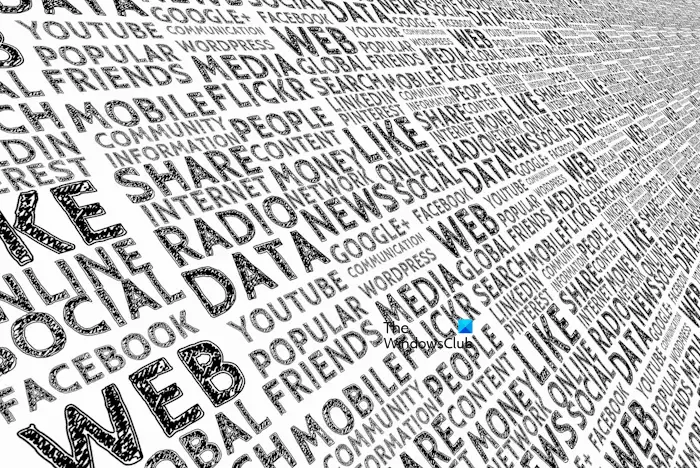The introduction of ChatGPT has revolutionized the world of Artificial Intelligence. After the introduction of ChatGPT, many big players developed and released their AI models. Microsoft Copilot and Google Gemini (previously known as Bard) are the two popular AI models in the field of Generative AI. Generative AI, as the name implies, is the AI technology that can produce various types of content including text, images, etc., through prompts. The rapid growth of AI content generation tools also posed privacy and security risks. In this article, we will talk about how to master digital privacy in an AI world.

Master Digital Privacy in an AI World
Undoubtedly, the tools powered by Generative AI showed rapid growth. They are also transforming the Digital Landscape. Today, Generative AI is capable of doing a variety of tasks. You can use it to generate text, images, etc. You can also use it for professional tasks like creating PowerPoint presentations. The rise of AI content generation has provided many benefits to users. In addition to this, it also posed various security and privacy threats.
The AI technology is designed to learn and improve by gathering information from the data it collects. The data collected by AI systems raises concerns about privacy and data protection. For instance, the Search Generative Experience (SGE) developed by Google collects data from various websites, regenerates it, and then displays it on the web. It does this without the users’ consent.

Deepfake is another example of a privacy and security threat generated by Artificial Intelligence systems. Today, many users are using the Deepfake technology to manipulate data and spread misinformation over the internet and social media platforms. These malicious actors use the Deepfake technology to harm the reputation of a certain organization or a particular person, such as a celebrity, a politician, or even a common man. Moreover, malicious actors can also use the Deepfake technology to create sensitive or compromising media of a particular person that damages his/her reputation and leads to emotional distress and mental harassment.
Understanding how your data is used in the AI world
AI models are trained on LLM (Large Language Model). An LLM is a large neural network model that contains a massive amount of data. AI models use this massive data to understand human language and generate respective responses. AI models also use this training data to learn the relationship between words and languages. This data is then used to predict the subsequent words. In this way, the AI models generate responses.

Because the AI models are trained on a massive amount of data, they generate responses based on users’ queries. This does not mean that every response generated by the AI model is correct. Hence, an AI model can sometimes generate untruthful and even harmful responses. That’s why AI models use users’ feedback to learn and generate correct responses.
AI also plays an important role in predictive advertising. AI collects users’ data based on their activity on the internet and interaction with advertisements. This helps advertisers optimize ad placement according to the user’s data.
Key Risks of AI Content Generation to Privacy
Undoubtedly, Generative AI has helped a lot of users across the world but it has also increased the risk to users’ privacy. Today, cybercriminals use AI technology to manipulate data and spread misinformation across the web. They do this for various reasons, such as to harm the reputation of a particular person or organization, to earn money from an individual or organization, etc.

Let’s see some points or examples to understand how AI technology is misused.
- Deepfakes and Trust: Deepfake is a technology that uses Artificial Intelligence to generate manipulated media. Most commonly, images and videos are manipulated using Deepfake technology. In addition to spreading misinformation and deteriorating individuals’ reputations, Deepfake technology can also lead to financial fraud. Cybercriminals can trick users by using Deepfake technology to steal financial information from them.
- Misinformation: AI models are trained on LLMs (Large Language Models) that have a massive amount of data. Therefore, AI models can also generate fake or incorrect information sometimes. If AI models generate fake news about a hot topic or a famous personality, it can spread misinformation among the users.
- The Illusion of Control: AI can create an illusion of control that might make you feel that you are in charge but you are potentially giving away more data. For example, based on your previous search experience on the internet, AI can show you some recommendations. When you respond to these recommendations, you give AI more information about yourself. Moreover, some companies can offer rewards for using their AI models. This encourages users to use their AI models and they can collect more data.
Protecting yourself in the AI content world
Because AI collects users’ data, digital privacy in the AI world has become a matter of concern. Therefore, it is necessary to protect yourself in the AI content world. You can protect your privacy by following some precautions.
Mindful data sharing

As the name implies, mindful data sharing refers to sharing only a limited amount of data while using AI technology. We have seen above how AI technology can encourage users to share more data. Therefore, it is important to know what information you are sharing while using AI technology.
Strong passwords and Two-factor Authentication

Because things are going smart in the field of Artificial Intelligence, you should not leave your accounts with only one layer of protection. Cybercriminals can use AI technology to crack the passwords of users, such as Brute Force Attacks. In addition to generating strong passwords, you should also enable Two-factor Authentication. The 2FA adds an additional layer of protection to your account and makes it extremely difficult for hackers to hack your account.
Attention against Phishing or Social Engineering

You should educate yourself on various types of Social Engineering practices to protect your privacy and accounts while surfing the internet. Phishing is the most common type of Social Engineering practice. It is used to steal the confidential information of users. If you know how these attacks happen, you can minimize the chances of your data being hacked or stolen.
Privacy Setting Checkups using VPN
VPN stands for Virtual Private Network. When you connect your internet connection with a VPN, all your data will go through an encrypted tunnel. Hackers cannot see or decrypt this encrypted data. VPN also changes your IP address. Hence, a VPN connection helps protect your privacy online. A VPN can also help you protect your privacy against AI-powered systems.

MacPaw ClearVPN 2 offers excellent protection while surfing on the Internet. It uses the AES-256 protocol to protect your data when you are connected to the internet. ClearVPN 2 is available in the following three types of subscriptions:
- 1-month subscription
- 3 months subscription
- 6 months subscription
MacPaw offers instant VPN activation and 24/7 technical and sales support. They also offer a 30-day money-back guarantee.
Consider Privacy-focused Tools
One way to protect your privacy online is by using the best privacy web browsers. Tor and Brave are among the best privacy web browsers. If you use these web browsers, your privacy will be protected online. The Tor web browser is also used to access the dark Web.

In addition to private web browsers, you can also install privacy software like CleanMyPC. CleanMyPC is privacy software that protects your online privacy. It automatically scans all the web browsers installed on your system, gathers the traces of your online activity, and allows you to control and manage your online privacy in one place. With CleanMyPC, you need not open your web browser settings to clean your online traces. You can do it with just a click on CleanMyPC. Select the browser data that you want to clean and then click on the Clean button.
CleanMyPC offers many features in addition to protecting your online privacy. You can scan your PC to find and delete junk files. It also features a Multi-Uninstaller that allows you to completely remove multiple programs from your system at the same time.
Understand Synthetic Media Detection
Synthetic Media is a piece of media, like a video, audio, text, or image, that is partially or wholly generated by AI. To protect your privacy, you should know the basics of detecting Synthetic Media. Though technological advancements have made Synthetic media detection tricky, you can still identify the Synthetic Media content. For example, if we talk about Deepfake technology, you can identify it by paying attention to the details. Look at some key points, such as skin tone, motion, etc.
Understand Global Laws
AI technology has both positive and negative sides. It can create many benefits for users in different industries. On the other hand, it can also be dangerous. Deepfake is an example of how AI can destroy one’s reputation. Therefore, it is mandatory to regulate AI. AI regulation laws vary across the globe. Different countries have started implementing their own approaches to regulating Artificial intelligence.
In April 2021, the European Union proposed the first regulatory framework for AI. This AI Act says that the AI systems used in different applications should be analyzed and classified according to the risks they pose to users.
In June 2022, the Government of Canada tabled the Artificial Intelligence and Data Act (AIDA) as part of Bill C-27, the Digital Charter Implementation Act, 2022.
Responsible AI
Responsible AI is the practice of developing AI with good intentions. The goal of Responsible AI is to deploy AI safely and ethically. Fairness, privacy, and safety are the main pillars of Responsible AI. It also has many benefits, such as ensuring AI transparency by building trust among organizations and customers, creating opportunities for employees, ensuring the protection of privacy and security, etc.
Human Agency and Ethical Use of AI
There is no doubt that AI is a powerful technology that can be used by organizations and authorities in useful ways. On the other hand, AI systems can be a topic of worry because they can diminish an individual’s ability to control his/her choices. That’s why, it is important that AI systems should be used in an ethical manner. The ethical use of AI systems includes transparency, privacy, and security.
Conclusion
The AI world can open many possibilities for individuals if it is used ethically. On the other hand, an unethical use of AI can lead to several issues. Users’ privacy and security are the two major concerns when it comes to the unethical use of AI technology. Hence, you, as a user, should be aware of the pros and cons of AI technology and know some tips that help you protect your privacy.
Leave a Reply